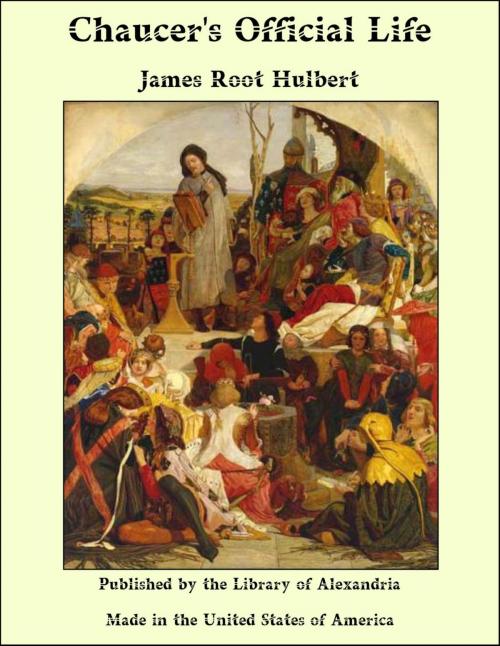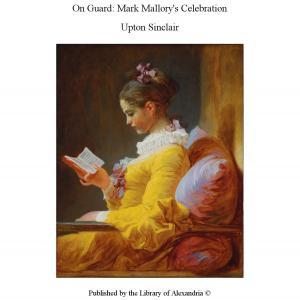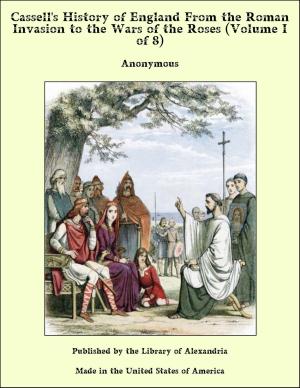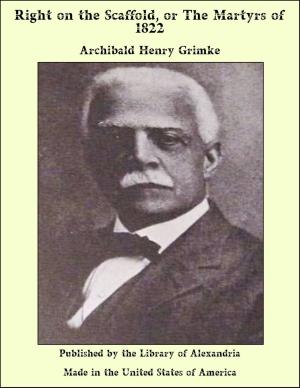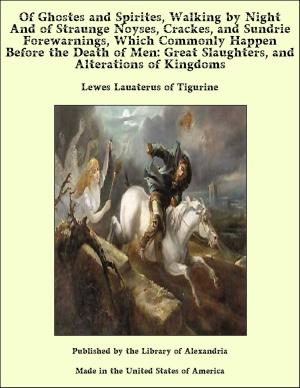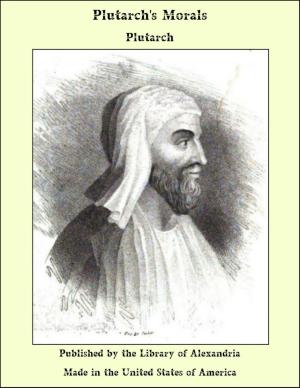| Author: | James Root Hulbert | ISBN: | 9781465575814 |
| Publisher: | Library of Alexandria | Publication: | March 8, 2015 |
| Imprint: | Language: | English |
| Author: | James Root Hulbert |
| ISBN: | 9781465575814 |
| Publisher: | Library of Alexandria |
| Publication: | March 8, 2015 |
| Imprint: | |
| Language: | English |
The researches of Sir Harris Nicolas, Dr. Furnivall, Mr. Selby and others have provided us with a considerable mass of detailed information regarding the life and career of Geoffrey Chaucer. Since the publication of Nicolas's biography of the poet prefixed to the Aldine edition of Chaucer's works in 1845, the old traditional biography of conjecture and inference, based often on mere probability or the contents of works erroneously ascribed to Chaucer, has disappeared and in its place has been developed an accurate biography based on facts. In the sixty-five years since Nicolas's time, however, a second tradition—connected in some way with fact, to be sure—has slowly grown up. Writers on Chaucer's life have not been content merely to state the facts revealed in the records, but, in their eagerness to get closer to Chaucer, have drawn many questionable inferences from those facts. Uncertain as to the exact significance of the various appointments which Chaucer held, his engagement in diplomatic missions and his annuities, biographers have thought it necessary to find an explanation for what they suppose to be remarkable favors, and have assumed—cautiously in the case of careful scholars but boldly in that of popular writers—that Chaucer owed every enhancement of his fortune to his "great patron" John of Gaunt. In greater or less degree this conception appears in every biography since Nicolas. Professor Minto in his Encyclopedia Britannica article [Footnote: Ed. Scribners 1878, vol. 5, p. 450.] says with regard to the year 1386: "that was an unfortunate year for him; his patron, John of Gaunt, lost his ascendancy at court, and a commission which sat to inquire into the abuses of the preceding administration superseded Chaucer in his two comptrollerships. The return of Lancaster to power in 1389 again brightened his prospects; he was appointed clerk of the King's works," etc.
The researches of Sir Harris Nicolas, Dr. Furnivall, Mr. Selby and others have provided us with a considerable mass of detailed information regarding the life and career of Geoffrey Chaucer. Since the publication of Nicolas's biography of the poet prefixed to the Aldine edition of Chaucer's works in 1845, the old traditional biography of conjecture and inference, based often on mere probability or the contents of works erroneously ascribed to Chaucer, has disappeared and in its place has been developed an accurate biography based on facts. In the sixty-five years since Nicolas's time, however, a second tradition—connected in some way with fact, to be sure—has slowly grown up. Writers on Chaucer's life have not been content merely to state the facts revealed in the records, but, in their eagerness to get closer to Chaucer, have drawn many questionable inferences from those facts. Uncertain as to the exact significance of the various appointments which Chaucer held, his engagement in diplomatic missions and his annuities, biographers have thought it necessary to find an explanation for what they suppose to be remarkable favors, and have assumed—cautiously in the case of careful scholars but boldly in that of popular writers—that Chaucer owed every enhancement of his fortune to his "great patron" John of Gaunt. In greater or less degree this conception appears in every biography since Nicolas. Professor Minto in his Encyclopedia Britannica article [Footnote: Ed. Scribners 1878, vol. 5, p. 450.] says with regard to the year 1386: "that was an unfortunate year for him; his patron, John of Gaunt, lost his ascendancy at court, and a commission which sat to inquire into the abuses of the preceding administration superseded Chaucer in his two comptrollerships. The return of Lancaster to power in 1389 again brightened his prospects; he was appointed clerk of the King's works," etc.
